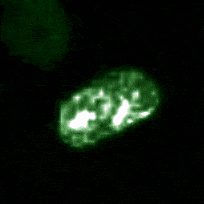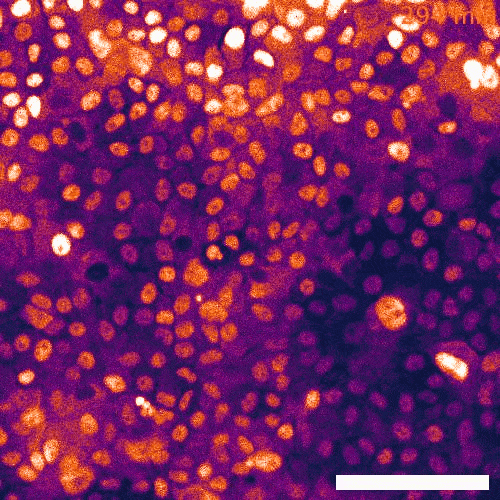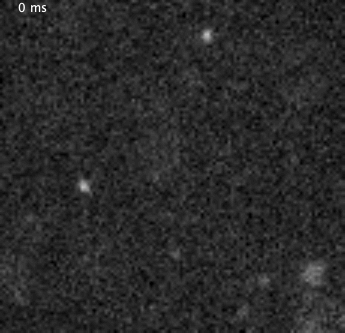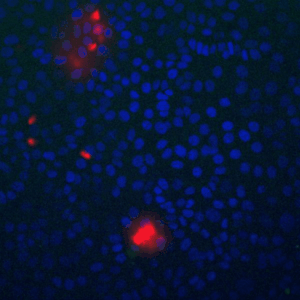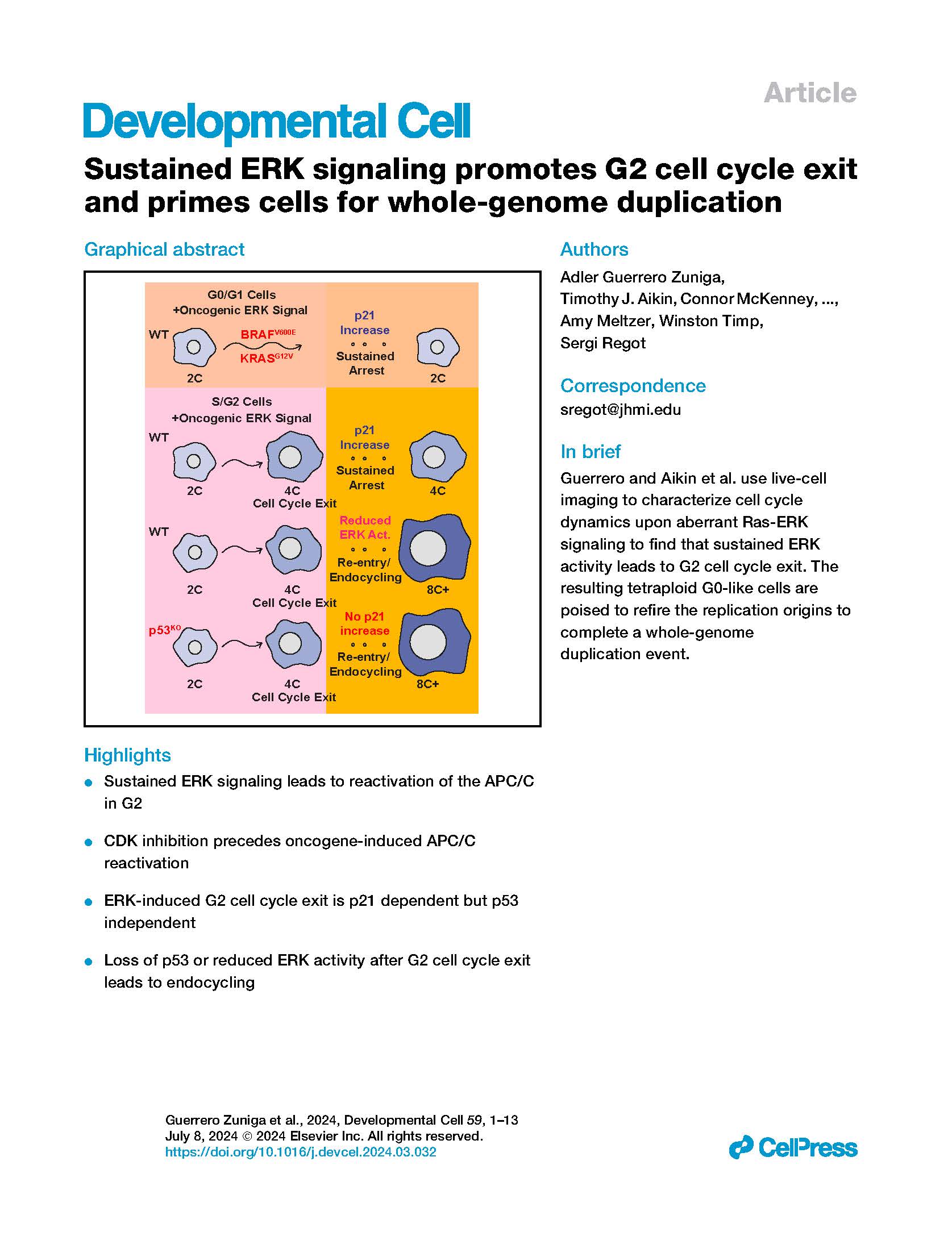Cells live in a constantly changing environment, accordingly signaling networks have evolved to be extremely dynamic. To study signaling dynamics and its role in controlling cell cycle we use live cell imaging of fluorescent biosensors. These technologies provide the spatial and temporal resolutions required to understand how single cells sense and properly respond appropriately to a changing environment.
We focus on a classical and fundamental question in biology – how do biological systems integrate diverse signals to produce distinct and appropriate responses?
Our research program has expanded into several exciting new areas of modern biology including mechanobiology, phase transitions, and the regulation of the biophysical properties of the cytoplasm.
Through genetic and biochemical approaches coupled with powerful fluorescent biosensors and live cell imaging, we aim to define new biological mechanisms that govern cell signaling.



